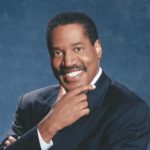Larry Elder: Pro Athletes Live in a World of Stats and Hard Data - Unless They're Talking About Police Shootings
Reacting to the shooting of a black man by a white Kenosha, Wisconsin, cop, a tearful Doc Rivers, the black coach of the NBA’s Los Angeles Clippers, held a postgame media conference.
Rivers said: “All you hear is Donald Trump and all of them talking about fear. We’re the ones getting killed. We’re the ones getting shot. We’re the ones that were denied to live in certain communities. We’ve been hung. We’ve been shot. And all you do is keep hearing about fear. It’s amazing why we keep loving this country, and this country does not love us back. It’s really so sad. Like, I should just be a coach. And I’m so often reminded of my color. … It’s just really sad. We got to do better. But we got to demand better.”
“We’re the ones getting killed”? “We’re the ones getting shot”? “And all you do is keep hearing about fear”?
NBA superstar LeBron James made a similar comment: “I know people get tired of hearing me say it, but we are scared as black people in America. Black men, black women, black kids, we are terrified. Because you don’t know; you have no idea. You have no idea how that cop that day left the house. You don’t know if he woke up on the good side of the bed. You don’t know if he woke up on the wrong side of the bed.”
Sports is a game of numbers, statistics and records. It’s one of the many things we like about it.
Where are the numbers, stats and records that show the police engage in “systemic” brutality against black people?
Why don’t the players and coaches who complain about police brutality employ the same use of numbers, stats, data, logic and reason to determine the truthfulness of the claim that cops are killing black people because they are black?
We argue over whether this player is better than that player or whether this team is better than that team. It’s fascinating to watch a coach of an NBA team dissect the game, stat sheet at his side, during the postgame media conference.
An ex-professional basketball player-turned-broadcaster responded to a critic’s complaint about the player’s “disappointing” NBA career.
Given the expectations coming out of college about this player’s future, the critic argued that the player underperformed in his pro career. The ex-player responded that such a comment can only come from somebody who’s never played basketball at the highest level.
Citing his career statistics, he surgically dismantled the critic’s case. For each of the three teams he played for, he said, his role changed. One team wanted him to be more of a scorer while another team wanted him to concentrate on defense, leaving the scoring to others. On his third team, he played an entirely different position with entirely different expectations.
My career, said the ex-player, must be seen in this context.
When a player’s agent argues to management that his client deserves more money, the agent uses stats and data to make the case. In turn, the team relies on stats and data to make their case.
Any analysis of whether cops are killing black people because they are black would begin with noting the approximately 50 million police-civilian interactions that occur every year. Out of these 50 million interactions, about 11 million people are arrested. In recent years, about 60,000 cops have been assaulted annually.
All of this resulted in about 1,000 people being killed by the police on average in recent years, with almost all suspects resisting with a weapon or resisting violently.
Of the 1,000 killed annually, approximately 250 were black and 500 white. The percentage of police shootings that involve a white cop and an unarmed black suspect is less than 4 percent of the total.
The percentage of white cops killing unarmed black men who did not reasonably pose a threat is even smaller. Recall that black suspect Michael Brown of Ferguson, Missouri, was “unarmed,” but his DNA was found on the officer’s gun, indicating that Brown was attempting to grab it.
For perspective, 27 Americans on average from 2009 to 2018 died annually after being struck by lightning. And, as Manhattan Institute’s Heather Mac Donald explains, “A police officer is 18 1/2 times more likely to be killed by a black male than an unarmed black male is to be killed by a police officer.”
Is it too much to ask that sports celebrities, who parrot lines like “systemic” police brutality against black people, ask for facts first? Too much to ask them to then apply the same kind of logic and reason they must rely on in their own profession?
If they did so, they would learn the good news — that there is no evidence of “systemic” police killings of black people and that the unfortunate instances should be dealt with on a case-by-case basis.
Can training be improved? Of course. Would it be helpful if officers wore body cams? Absolutely. Let’s focus our energy on these things and set the hysterics aside.
© 2020 CREATORS.COM
The views expressed in this opinion article are those of their author and are not necessarily either shared or endorsed by the owners of this website. If you are interested in contributing an Op-Ed to The Western Journal, you can learn about our submission guidelines and process here.
Truth and Accuracy
We are committed to truth and accuracy in all of our journalism. Read our editorial standards.
Advertise with The Western Journal and reach millions of highly engaged readers, while supporting our work. Advertise Today.












